Solve.The price of commodities, like pork bellies, is determined by supply and demand. Thus, the price of pork bellies is a function of the number of pounds of pork bellies produced. The price of a pound of pork bellies can be estimated by the function f(Q) = - 0.000003Q + 0.85, 10,000 ? Q ? 80,000where f(Q) is the price of a pound of pork bellies and Q is the annual number of pounds of pork bellies produced.i) Construct a graph showing the relationship between the number of pounds of pork bellies produced and the price of a pound of pork bellies.ii) Estimate the cost of a pound of pork bellies if 70,000 pounds of pork bellies are produced in a given year.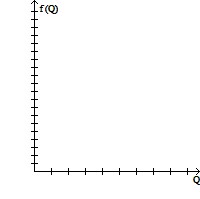
width="200" />
A. i)
ii) $0.64 per pound
B.
| i) |

ii) $1.06 per pound
C. i)

ii) $1.06 per pound
D. i)

ii) $0.64 per pound
Answer: D
You might also like to view...
Factor completely. If the polynomial is prime, so state.7x2 - 7x - 42
A. (7x + 14)(x - 3) B. 7(x + 2)(x - 3) C. 7(x - 2)(x + 3) D. prime
Match the system of equations with one of the graphs.x2 - y2 = 121x2 + y2 = 49
A. 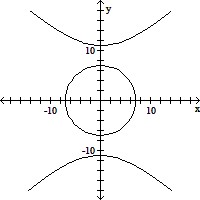
B. 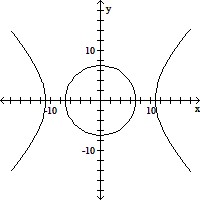
C. 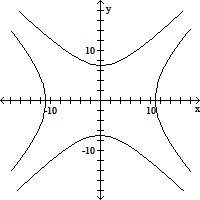
D. 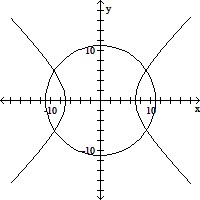
Provide an appropriate response.In a test of a diet for pigs, the average live weight w (in kilograms) of a pig was a linear function of the number d of days after the start of the diet, where 0 ? d ? 50. The weight of a pig at the beginning of a diet was 25 kg and thereafter the pig gained 5 kg every nine days. (a) Express w as a function of d. (b) Find the weight of a pig 36 days after the beginning of the diet.
What will be an ideal response?
Without graphing the function, determine its amplitude or period as requested.y = -5 cos  xFind the amplitude.
xFind the amplitude.
A. 
B. 4?
C. 5
D. 